Product News
-
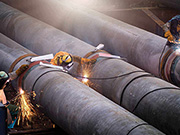
What are the precautions for welded steel pipe
1. Cleaning and Preparation: Before you start welding, make sure all materials are clean and free of oil and rust. Remove any paint or coating from the weld area. Use sandpaper or a wire brush to remove the oxide layer from the surface. 2. Use the correct electrode: Choose the appropriate electro...Read more -
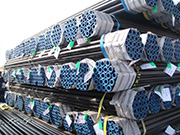
How are industrial seamless steel pipes produced
1. The production and manufacturing methods of seamless steel pipes can be divided into hot-rolled pipes, cold-rolled pipes, cold-drawn pipes, extruded pipes, etc. according to different production methods. 1.1. Hot-rolled seamless pipes are generally produced on automatic pipe rolling units. The...Read more -
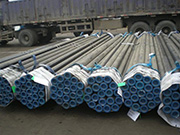
Comparative analysis of seamless steel pipe and ERW steel pipe
①Outer diameter tolerance Seamless steel pipe: The hot rolling forming process is used, and the sizing is completed at around 8000C. The raw material composition, cooling conditions, and cooling status of the rolls of the steel pipe have a great impact on its outer diameter. Therefore, the outer ...Read more -
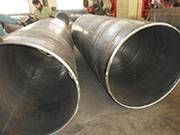
What are the precautions for industrial welded steel pipes details
The quality of welding is directly related to the safety and stability of the product. So to ensure the quality of welded products, what issues should we pay attention to? First, steel pipe thickness. In the production and use process of welded steel pipes, the thickness of the steel pipe is a ve...Read more -
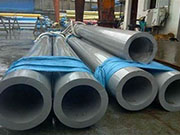
Ultrasonic testing requirements for thick-walled seamless steel pipes
The principle of ultrasonic inspection of thick-walled seamless steel pipes is that the ultrasonic probe can realize mutual conversion between electrical energy and sound energy. The physical characteristics of ultrasonic waves propagating in elastic media are the basis of the principle of ultras...Read more -
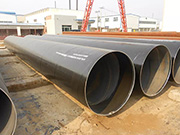
What is the stress condition of spiral steel pipe during the extrusion process
(1) During the extrusion process, the temperature of the lining of the spiral steel pipe continues to increase as the extrusion process proceeds. At the end of the extrusion, the temperature in the area of the inner wall of the lining close to the extrusion die is relatively high, reaching 631°C....Read more
